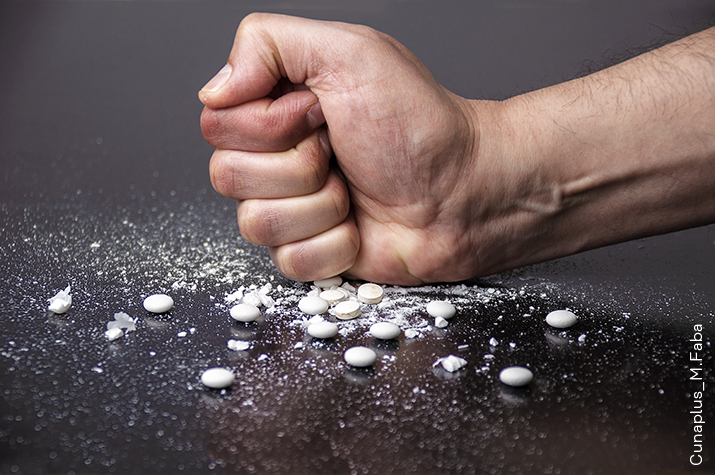HAPPENING AT THE UN
Almost everyone is against the drug trade but opinions differ on the methods used to combat this problem. « The “war on drugs” undermines health and social well-being and wastes public resources without managing to eradicate the illegal market ». So say the experts of the United Nations, according to whom « this "war" has in many cases generated narco-economies at the local, national and regional level, to the detriment of national development ». In a document recently released in the event of « International Day Against Drug Abuse and Illicit Trafficking », the specialists go so far as to say that « such policies have far-reaching negative implications for the widest range of human rights, including the right to personal liberty, freedom from forced labour, ill-treatment and torture, the right to a fair trial, the right to health including palliative treatment and care, the right to adequate housing, freedom from discrimination , the right to a healthy and clean environment, the right to culture and freedom of expression, religion, assembly and association and the right to equal treatment before the law ». To put it simply, it would seem that sometimes crimes are committed in order to combat crime.
The experts who raised the alarm are part of the so-called Special Procedures of the Human Rights Council, a UN Security Council investigation and monitoring body that addresses specific situations in a given country or thematic issues in all areas of the world. In particular, in a study published in 2021, the Working Group on Arbitrary Detention found that the "war on drugs" has led to « mass incarceration through racial profiling, search and seizure laws and procedures, excessive preventive detention, disproportionate sentences and the criminalization of people who use drugs, including pregnant women in some countries ». The study also found « widespread violations of rights, including unlawful incarceration, the trial of children and adolescents as 'adults', torture and ill-treatment, lack of guarantees for a fair trial, extrajudicial executions and abusive use of the death penalty ».
According to the report, there is a further series of issues related to the disproportionate use of the death penalty or the forced eradication of crops, which can lead to the loss of life due to the excessive use of force as well as causing severe damage to subsistence crops through aerial spraying of dangerous substances used to destroy illegal crops.
We must be careful, however: the experts in no way claim to give up the fight against drug trafficking, but ask « member states and all United Nations agencies to base their responses on law and international standards of human rights ». It would appear that such a policy would not only be more just, but also more effective.







